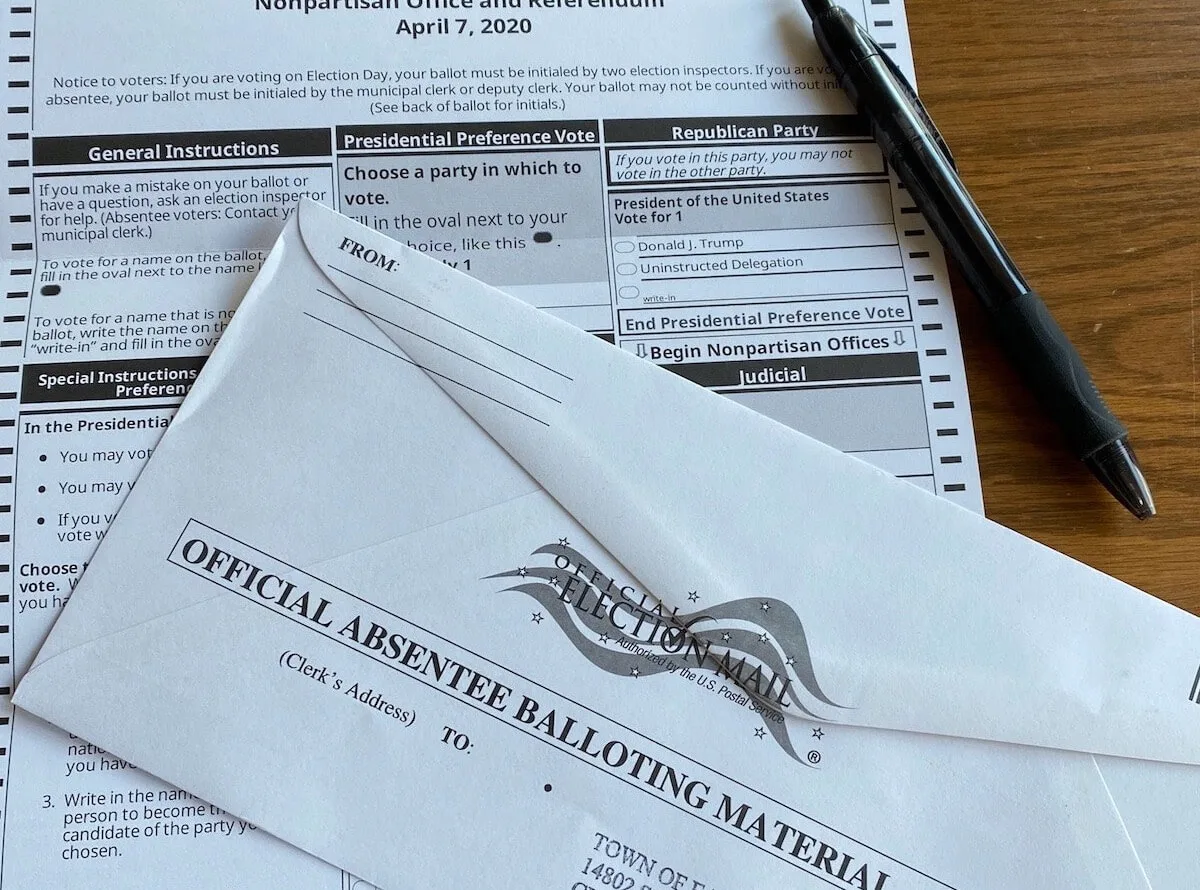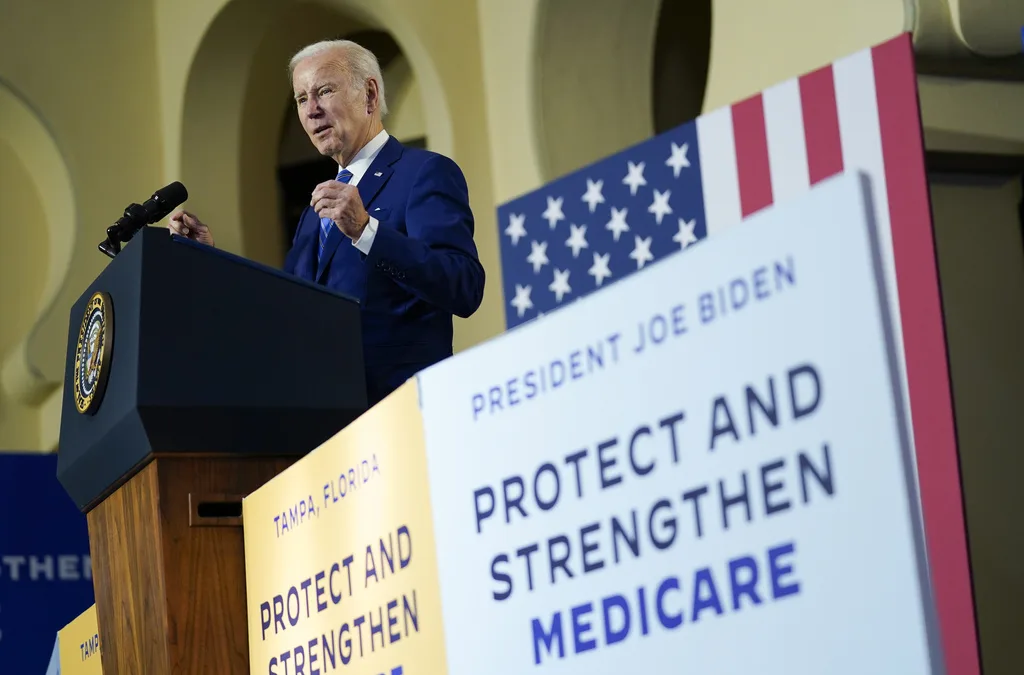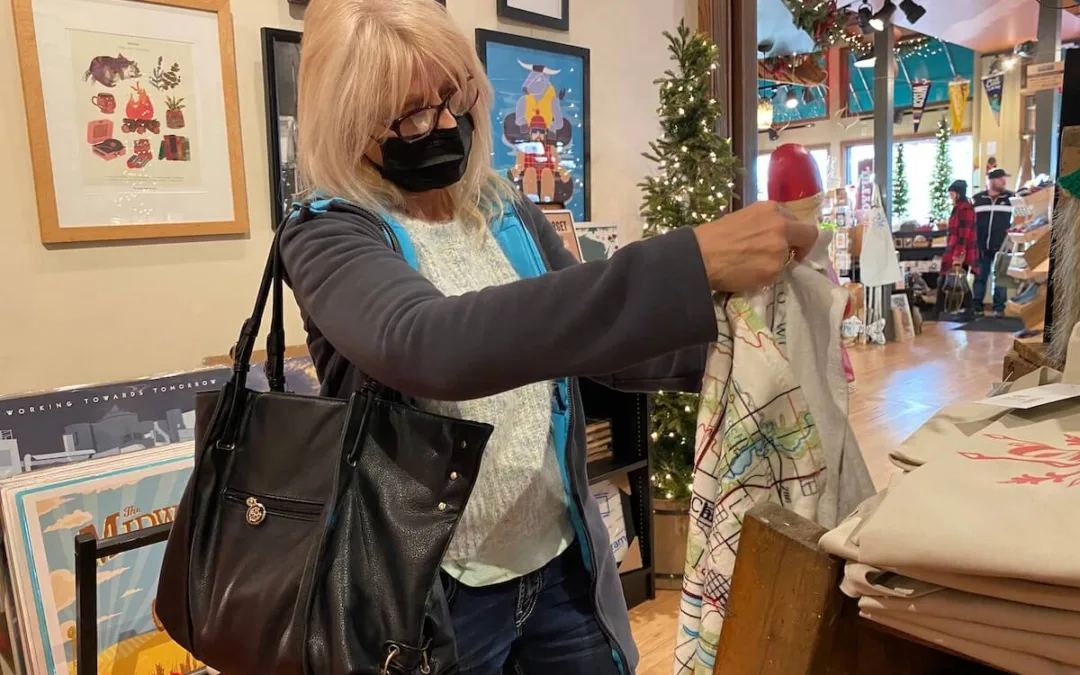
#image_title
#image_title
Elections Commission chair says delaying millions of ballots could be catastrophic.
An order by the Wisconsin Supreme Court’s conservative majority late Thursday to freeze absentee ballot mailing could be “catastrophic” if the court rules ballots must be revised, Wisconsin Elections Commission Chairwoman Ann Jacobs said Friday morning.
The court’s four conservative justices told election clerks on Thursday that they could not, for the moment, send any more absentee ballots, just a week before the mailing deadline. The temporary pause came following a lawsuit filed by Green Party presidential candidate Howie Hawkins, who is requesting that the Supreme Court force the Elections Commission to include him on the ballot for the Nov. 3 General Election. Hawkins was left off the ballot when the Elections Commission deadlocked on whether to accept some nominating signatures that listed an incorrect address for Hawkins’ vice presidential candidate, Angela Walker.
Should the Supreme Court rule in Hawkins’ favor, it could mean the state would need to reprint millions of ballots and scramble to figure out what to tell the thousands of voters whose ballots have already been mailed, Jacobs said. As many as 378,000 ballots have already been mailed to voters, according to a document the Elections Commission filed with the Supreme Court.
“A brief pause isn’t going to change much in terms of the process, and as of right now it has simply been a brief pause,” Jacobs said. “If, however, the court does something radical like order ballots to be redesigned and issued with other people on it, that would have fairly significant and catastrophic implications for the ability of Wisconsin voters to get their ballot on time.”
The mailing deadline for elections clerks is Sept. 17 for absentee ballots going to general voters and Sept. 19 for military and overseas voters. Missing those deadlines, even if due to a Supreme Court decision, would be a violation of state and federal law. That concern is especially grave for voters in the military, Jacobs said.
“Concern No. 1 is simply that ballots won’t get completed in time for voters to get them, fill them out, and get them back—particularly for our military and overseas voters,” Jacobs said. “We will be violating federal law and the rights of our military voters.”
It is unclear what the penalty may be for election clerks who miss the mailing deadline due to the possible court delay.
The Elections Commision wrote in a court response that “there is practically no better way to produce unprecedented disorder in Wisconsin’s general election than to require a statewide reprinting of ballots this late in the day.”
“That process cannot practically be repeated now and still meet state and federal statutory deadlines,” the Commission wrote. “Creating and printing ballots is a lengthy, laborious process that requires designing thousands of ballot versions for each of Wisconsin’s 1,850 municipalities, proofing them, waiting for specialized printers to print them and return them to local clerks, and then mailing them to voters.”
On the surface, the Supreme Court’s decision has similar appearances to other right-wing efforts to sow doubt or chaos in the November election, which is expected to have record-shattering levels of absentee voting due to the coronavirus pandemic. The US Postal Service is already expected to experience delays during the election due in part to Postmaster General Louis DeJoy’s removal of mail-sorting machines across the country and President Donald Trump’s intentional withholding of funds from the USPS to sabotage mail-in voting.
Jacobs did not directly respond when asked if she felt the Supreme Court’s decision was a case of judicial activism.
“My hope is that the court’s reaction was simply based on an unfamiliarity with the complexities of the election process at this stage in an election,” Jacobs said.
Dean Knudson, a commissioner who was the Elections Commission chairman until June when Jacobs was named the next chairperson, could not immediately be reached for comment Friday.
The Rev. Greg Lewis, who is active in voter registration efforts in Milwaukee, said the court’s decision is the most recent attempt at voter suppression in Wisconsin.
“In the middle of a deadly pandemic, facing down an economic crisis and lawmakers stoking the fires of racism, we need to make it easier for every single person to vote safely and fairly,” Lewis said. “Instead, the Wisconsin Supreme Court is trying to make it harder and more confusing to exercise the rights our ancestors fought and died for.”
While the court case has upended mail-in balloting, voters still have another option for casting a ballot without being part of any crowds on Nov. 3. Early, in-person absentee voting will happen at local clerk’s offices starting Oct. 20 and continuing through Sunday, Nov. 1. Each clerk sets their hours for early voting. Voters can find their local clerk and get other early voting information at myvote.wi.gov.
Election clerks across Wisconsin expressed frustration at the Supreme Court decision, saying it presents another hurdle to a fall election season that already faced a challenge in the form of a record number of requested absentee ballots amid the coronavirus pandemic.
After the struggles of the spring election that included last-minute uncertainty about the election date, absentee ballot issues, struggles finding enough polling place workers, and reduced voting sites in Milwaukee and Green Bay, election clerks said they had prepared for the Nov. 3 presidential election.
Chippewa County received its newly printed election ballots Friday afternoon, but instead of being mailed to local clerks, those ballots will be placed in secure storage while County Clerk Jaclyn Sadler awaits word from the court about whether new ballots must be reprinted to include the Green Party candidates and/or rapper Kanye West, who is also suing the Elections Commission in a separate case.
About 2.3 million ballots without those names have already been printed, and until the court decides whether those presidential candidates will be on the ballot, Sadler and other clerks said they’re waiting to send ballots out.
“It’s very frustrating,” Sadler said Friday of having to delay sending local clerks ballots to get to voters and comply with deadlines. “After all of the uncertainty we went through in the spring, I was trying to have ballots to the clerks early enough so next week wouldn’t be such a scramble for them. Now here we sit with no answer.”
Eau Claire County Clerk Janet Loomis expressed similar sentiment about the delay she said could cause her to miss meeting the Sept. 16 deadline for sending ballots to local clerks in that county so they can get them to voters in a timely manner.
The county has received its 66,400 ballots back from the printer, she said, but must wait for the court to decide whether more names will be added to the ballot, forcing them to be reprinted, or whether current ones can be sent out. The current ballots cost $14,000 to print, she said, and reprinting them will cost the same.
“We were doing everything we could to plan for this election, and then this happened,” Loomis said. “We can’t do anything right now until those two cases are resolved. What can I say? This is 2020.”
City of Eau Claire election officials have about 10,000 absentee ballots to mail, and “if we have to print new ballots, it’s very difficult to see how we could meet the deadline requirements,” Deputy City Attorney Douglas Hoffer said. “This situation creates some real difficulties for clerks across the state.”
Many clerks, like those in Dane County, already had printed or sent out ballots as they deal with an unprecedented number of absentee requests during the pandemic. Others clerks, such as Marathon County Clerk Kim Trueblood, put the county’s ballot printing order on hold when she received news of the court’s action.
“We knew 2020 was going to be rough, and then with the pandemic and now this decision, it feels like the challenges are never ending,” Sadler said.
Politics

The Republican war on Medicare raises the stakes in 2024
Nearly 1.3 million Wisconsinites rely on Medicare benefits—benefits they spent decades paying into, with the promise that the program would be there...

Opinion: Donald Trump’s attacks on abortion rights puts politicians between doctors and their patients
In this op-ed, UW-Madison Medical Student, Charlotte Urban, discusses Trump’s attack on abortion rights and health care, emphasizing the importance...
Local News

Where to buy farm-fresh eggs in western Wisconsin
There’s nothing better than eggs from a local farm. Of course, they taste fresher and last longer, but the best part is that you’re supporting a...

13 local bookstores every Wisconsin reader should know
Whether you’re sitting outside enjoying beautiful weather or curling up inside during a snowstorm, it’s always a great time to crack open a book....


